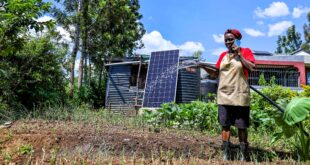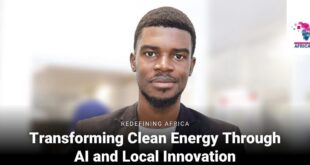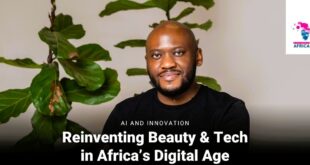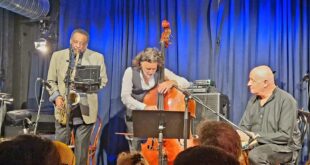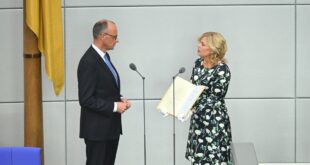Since 1992, the University for Development Studies in Ghana institution has been helping the rural poor of northern Ghana. Its range of projects is remarkable: from setting up and running agribusinesses to recycling plastics, from building dams to spreading literacy, from preserving water resources to educating parents about the value of keeping their children in school. Our contributing editor Tom Sykes reports on an institution that has broken with the convention of university education in Africa and is addressing the conditions and structural causes of poverty.
There are north-south divides in many countries, but Ghana’s is particularly stark and long-standing. During colonisation, the Europeans invested heavily in the south – where the gold, cocoa and slave trades were located – while impoverishing the north and exploiting it for cheap labour. Aspects of this legacy remain, and despite the best efforts of successive governments, the north needs more jobs and businesses and its people continue to migrate south for work.
According to Caesar Abbagali of the Ghana News Agency, poverty in the Upper East Region is 49 per cent higher than the national average. In the Upper West the figure is 44 per cent. Northern Ghana is beset with all kinds of problems associated with poverty – unemployment, homelessness, disease, malnutrition and illiteracy – and with climate change – drought, flooding, pollution and food insecurity.
These might seem impossible hurdles to clear, but one organisation has been making an Olympian effort. The University for Development Studies (UDS), established in 1992 to “blend the academic world with that of the community”, runs a huge range of initiatives to help northern communities to help themselves.
I get a hint of these initiatives before I even arrive at Tamale, the biggest of UDS’s four campuses. Along the side of the road, which winds through the beautiful savannah, are numerous signs: Northern Rural Growth Program, Agro Beauty, Malaria Prevention, Netherlands Development Program.
I pull up outside the marquee-shaped administration building and the international director, Gordana Kranjac-Berisavljevic, comes out to meet me. She starts talking about the university’s history. It was founded in 1992 as Ghana’s first “pro-poor” academy, and its initial intake of agriculture students numbered only 39. Today, 19,000 undergraduates are enrolled at UDS, but they are just as likely to be digging wells in remote hamlets as sitting in lecture theatres.
The academic year comprises two trimesters of teaching and one trimester of “orientation” in which students go out into the community and put development
theories into practice. UDS was the first university in Ghana to structure its courses like this.
I then meet a PhD candidate and agricultural engineer named Bizoola Zinzoula Gandoa, who tells me about his contribution to CECAR, the UN’s project to boost community resilience to climate change in West Africa. Gandoa designed a robust new kind of dam to mitigate the effects of extended periods of heavy rainfall and unpredictable flooding. He is proud that his dams have been built all across Northern Ghana.
I ask him what challenges students might encounter in the field. “If you go to a community during the middle part of the rainy season,” he says, “before you finish your work, the roads can flood and you cannot escape. Sometimes our students have to wait two or three weeks until the flood has subsided.”
I wonder if UDS ever encounters resistance from any quarter. “No,” says Professor Kranjac-Berisavljevic. “We are publicly funded, although we rarely come up against criticism or opposition from the government because they realise that we are doing important work. If anything, Ghana is too free and open in this regard – everyone talks and everyone has an opinion!”
“I came to Ghana from Serbia 25 years ago and have always found Ghanaians easy to work with.”
After the Tamale campus, it’s time to drive to Nyankpala, the headquarters of UDS’s agriculture faculty and entrepreneurial ventures. It’s appropriate that I can’t tell where the local village ends and the campus begins: some of the university’s buildings resemble huts and peasants work alongside staff and students chopping the grass with machetes.
The wandering cattle and sheep offer clues to the kinds of agribusinesses operating here. Nyankpala’s farm, slaughterhouse and meat factory are run as profit-making entities and UDS-produced mutton, beef, chicken and pork are available on the open market.
Researchers at Nyankpala helped to design an innovative infrared spectrometry technique for the sustainable management of the shea tree, as part of the 1.7 million-euro INNOVKAR initiative. The shea is an important agricultural product used in food, medicine and cosmetics.
The campus was also at the forefront of the JIRCA Rice Project, which established in Ghana Asian-style levelled, bundled and puddled paddy fields with low life-cycle costs. At the same time, JIRCA genetically improved stocks of lowland and upland rice have lessened the damaging effects of rice blast fungus. Albert Quainoo, the Dean of Nyankpala, argues that this work has saved countless lives.
Next I travel to the campus in Wa, a sedate and dusty town in the northwest corner of the country. The Dean-in-Charge, Professor Francis Bacho, talks about some of his students’ finest achievements. “We have helped poor women to adapt to new kinds of employment because these days both husbands and wives have to earn a living. We have a group that is currently promoting literacy and the idea that children should stay in school rather than go out to work.” I ask him about the methods they use. The answer is, unexpectedly, “Theatre. We try to show the risks of dropping out of education through role-plays and performances.”
Professor Bacho then mentions the prestigious Harmattan School, a conference that takes place during the dry windy season which brings together students, academics and policy-makers. “Each year,” he says, “much of the knowledge that is shared feeds into government policy and becomes law.”
Caesar Abbagali has written that for a long time “Ghanaians considered it a punishment to be posted to the north to work”. Perhaps now the tables are turning, and partly this is thanks to the University for Development Studies.
 THE AFRICAN COURIER. Reporting Africa and its Diaspora! The African Courier is an international magazine published in Germany to report on Africa and the Diaspora African experience. The first issue of the bimonthly magazine appeared on the newsstands on 15 February 1998. The African Courier is a communication forum for European-African political, economic and cultural exchanges, and a voice for Africa in Europe.
THE AFRICAN COURIER. Reporting Africa and its Diaspora! The African Courier is an international magazine published in Germany to report on Africa and the Diaspora African experience. The first issue of the bimonthly magazine appeared on the newsstands on 15 February 1998. The African Courier is a communication forum for European-African political, economic and cultural exchanges, and a voice for Africa in Europe.



